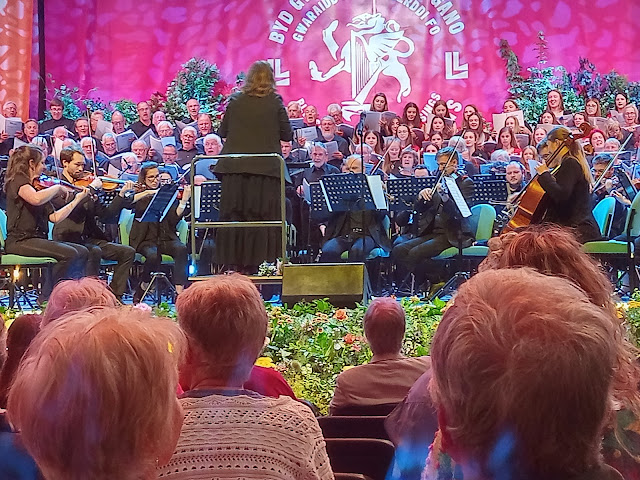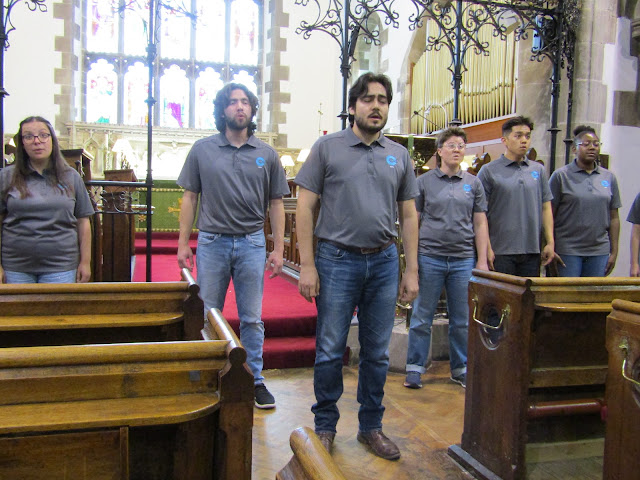The Eisteddfod Pavilion’s enormous stage was made for last night’s emotive and deeply moving concert, The White Flower Into the Light, which showed how the beauty of hope can be born from the ugliness and pain of war.
Its cavernous dimensions perfectly accommodated a massed choir of 200 voices and a wondrous orchestra who came together for a work of remembrance for the fallen of Srebrenica, Bosnia and Ukraine.
And their performance was also the very embodiment of the eisteddfod’s founding principles of international peace and friendship.
Music to touch the soul came from Karl Jenkins, Finzim Gjeilo and the traditions of Wales, Bosnia and the Ukraine.
This was poignantly driven by the north Wales-based New Sinfonia orchestra led by its resident conductor Robert Guy and, at one point, by Polina Horelova, a Ukrainian mother-of-four and musician who escaped the Russian invasion of her homeland to take refuge in this country.
In close partnership with New Sinfonia was Lleisiau Llan, a tremendous 200-strong choir of voices recruited and trained locally specially for this occasion and containing a number of refugees.
The piece which gave the concert its title, The White Flower, was penned by Sarajevo-born composer and guitarist Elvir Solak who was there to help present it along with Lejia Jusic, an accomplished musician also from Sarajevo.
The programme for the evening began with the deeply evocative White Flower and moved through the haunting The Rose by Gjeilo then was lightened somewhat by Rodgers and Hammerstein’s Edelweiss, written for the film Sound of Music, whose theme was the destructive power yet hope which war can bring. It was here that the choir’s powerful resonance first took command.
Elen Mair Roberts, a notable north Wales musical director, took over the conductor’s baton to lead New Sinfonia in the traditional Welsh piece Mil Harddach wyt na’r rhosyn gwyn.
Finzi’s Let us Garlands Bring followed before baritone Emyr Lloyd Jones presented three traditional folk songs including the ever-hopeful springtime note of It Was a Lover and His Lass.
Later in the programme came Karl Jenkins’ The Armed Man, A Mass for Peace and a choral suite comprising Agnus Dei, Benedictus, Hymn Before Action, Kyrie and Sanctus – all at once soaring and majestic and cataclysmic yet joyous thanks to the profound skills of the orchestra and the pieces’ interpretation by that marvellous choir.
Polina Horelova conducted the light-hearted yet still moving Ukraine River Song by Yakub, when a group of young dancers in traditional Ukrainian costume appeared amongst the audience to help illustrate the piece.
The evening was perfectly rounded off with the spine-tingling and hopeful World in Union with music by Holst arranged by Skarbek.

















